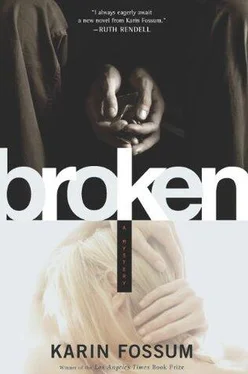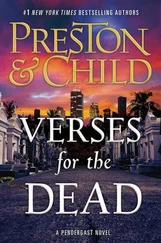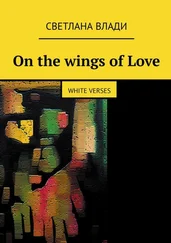Everything you ever did, Mama, was nothing. All those years you fought, all those bruises, all the agonies I went through when you were imprisoned — for nothing. And you saw that, didn’t you, well before I did? When the Poet died — no words of his powerful enough to turn away a hammer or a fist — you saw the futility of that life you had lived so passionately. That’s why you made the choice you did, the one I started to understand that 17 August, though it would be a long time before I fully acknowledged it.
‘Should we be happy?’ thirteen-year-old Rabia had asked, coming into my room and hearing me say Zia was dead. When I heard that — my baby sister, all wide eyes and good intentions, wanting to know whether to feel happy about a bomb blast that killed a planeload of people — I banged my head against the wall and howled with tears that left my throat raw.
‘God, you scared the life out of me that day,’ Rabia said, her hands covered in soapy water. ‘All that bawling and flailing. It didn’t help that I’d just seen The Exorcist .’
I laughed, and ran my hand through my hair. ‘Rabia, I’ve had a wretched week.’
‘Hallelujah!’ she said. ‘An admission of misery. You going to tell me why?’
I shrugged and went to dry the dish she was holding out to me. ‘Some days just seem to have so many hours in them.’
‘I see. It’s Aasmaani the Obscure again. Let me make a wild guess here — when you had lunch with Shehnaz Saeed, she spoke to you about your mother, didn’t she?’
‘She tried. She gave me the oh-how-the-nation-needs-her speech.’
Rabia dunked the frying pan in soap suds and flicked her wet hands in the direction of a hanging plant — a trick she’d learned from our snapdragon neighbour. ‘Well, the nation does.’
‘Oh, please.’
‘You do, too — no one’s denying that…’
‘I’m not accusing anyone of denying that.’ The words came out angrier than I expected. I was so tired of the way Rabia always approached me with such care around the subject of my mother, as though I might shatter into a million pieces if she didn’t say exactly the right thing. ‘Sorry. I’m still sleepy, that’s all.’ I kissed her forehead and started to walk away.
‘We’re just starting a conversation here,’ Rabia said, but I shook my head and kept going. ‘Why is it so necessary for you to believe that version of her life, Aasmaani?’ she called out. I turned slightly. ‘Why is it so necessary for you to believe her activism amounted to nothing?’
What was that line in the encrypted pages? Create a story about yourself, and shape everything to fit that story .
I entered my flat and locked the door behind me. Here, in my mind, were so many different images of my mother. My mother at twenty-three in a white kurta, lapis lazuli at her wrist. My mother at twenty-six, unable to resist an ex-lover in a grey shawl. My mother at twenty-seven, carrying me into a prison. My mother at thirty-four, rallying women together. My mother at thirty-five, running after the Poet to Colombia, leaving the women and me behind. My mother at thirty-eight, her body covered in bruises from a policeman’s lathi, preparing to go out and lead another demonstration. My mother at forty, still dancing to old Donna Summers records. My mother at forty-one, allowing her grief over the Poet to consume her. My mother at forty-two, worse than she had been the year before. My mother at forty-three, gone.
What connected all the women in those images — the activist, the mother, the lover, the mourner, the dancer, the deserter? What allowed a single ‘version’ to arise from such variedness? There was a word for it: character. That imaginary tyrant. We pretend we all have one, and that it is something to be relied upon, something knowable and true, even when it oppresses and constrains us. When someone behaves ‘out of character’ we frown a little, a voice inside us whispering something that makes us uneasy, but then our brows clear. We’ve found a way to reinterpret the action as being in character. Or we say we were wrong about the person’s character to begin with, and now, magically, our memory is able to furnish us with clues which would have revealed as much had we but picked up on them earlier. Otherwise, the person is deceptive; showing one face to the world while knowing all along that face was just a mask, ready to be ripped off with dramatic force. We don’t dare consider that the internal voice which makes us uneasy is a voice that whispers: there is no such thing as fixed character, there is only our need to join the dots into a single picture.
Anything that doesn’t fit the picture, we just forget about, or re-imagine.
I moved away from the door I had been leaning against and started to pace the length of the room. The joke of it, of course, is that we ourselves become slaves to the stories of our own characters. Our invented narratives of self determine our actions and reactions—1 am brave; I am fickle; in such and such a situation I will behave in such and such a fashion. Character is just an invention, but it’s an invention that serves as both reason and justification for our behaviour. It is the self-fulfilling prophecy that guides our lives, worming its way so deep beneath the levels of conscious thought that we forget there might have been a time when our ‘defining traits’ seemed less than inevitable. We are able to look back on our lives and chart our ‘development of character’, never seeing that it’s the development of a storyline, and the longer we live with it the more boxed in we are by the rapidly diminishing variedness of our imagined selves. What we can’t ever accept is that we might never know who we are.
I pushed open the door that led out to the balcony and breathed deep the carbon dioxide expelled by the plants around me. No — it’s more terrifying than even that. What we can’t begin to consider is that there is no consistent T, only a somewhat consistent outward form that houses such a vast set of possibilities that there would be anarchy if not for the tyranny of character. What frightens us most about this is knowing how easily we might have picked up another script, been governed by another tyrant, and so lived another life. I sank my hand into the loam in a flowerpot, and held it up to my nose. It smelt of hope, awful and richly glorious at the same time.
And all around us, people are reinforcing our notions by telling us, directly and in their treatment of us, who we are, what we believe in. At what point does character-playing become habit, something for which we are grateful because it allows us to go through the world with the ease that comes from being predictable to ourselves, even if that predictability takes the form of neurosis, hysteria, depression? And at what point does that habit turn darkly into addiction? I wiped my hands clean. We are so desperate to be explicable to ourselves, to rely on ourselves, that we need to believe a certain version of who we are even when evidence starts to mount that the version is a lie, even when the part of us which is not tamed by habit strains to break free and overwhelm the tired, repetitive creature that our character has become, mouldering at the edges.
When did my mother realize all of this and seek to break out of the character she and the world had invented for her? When did she see she couldn’t successfully achieve that breakout so long as she was in the company of anyone who would try to re-impose that old narrative of character on to her life? Was it in the summer of ‘88 when all those activists and I demonstrated we still believed — well over two years after she had ceased to give us reason to believe it — that given the right opportunity, the right cause, she would become the Samina of grazia once more? And was it before or after that — the moment when she looked at me and thought, while I am discarding everything of myself I will also discard this child of mine?
Читать дальше












